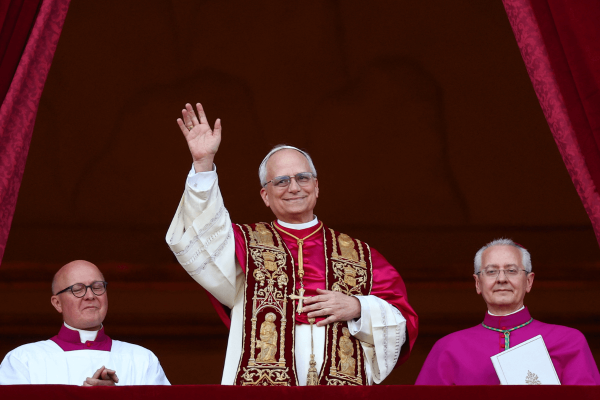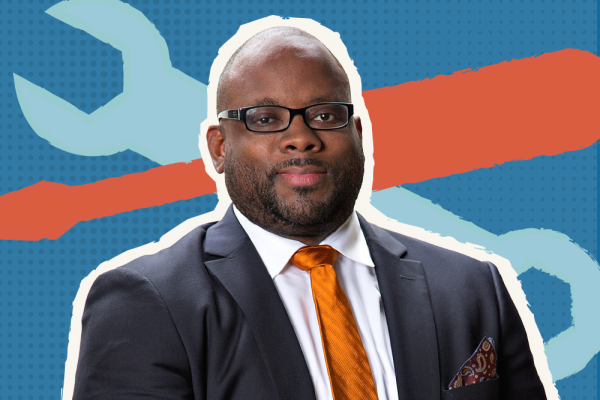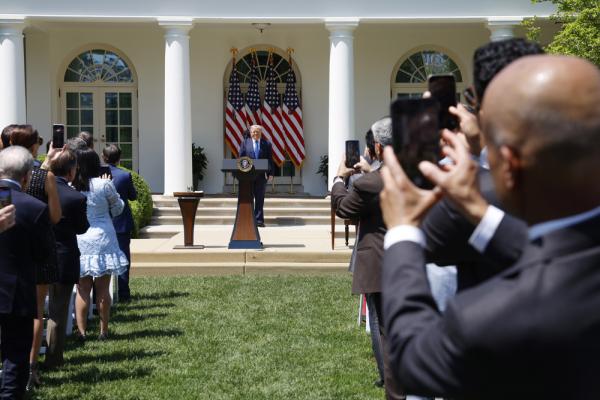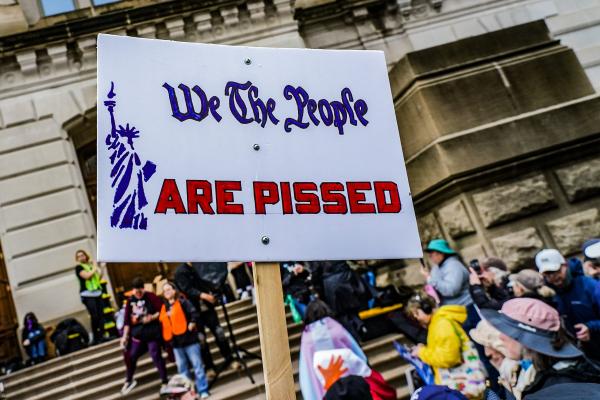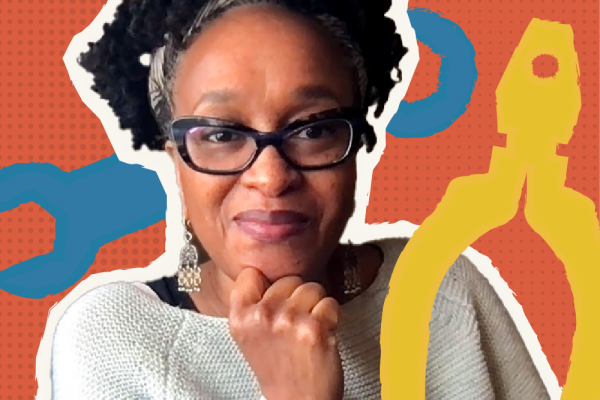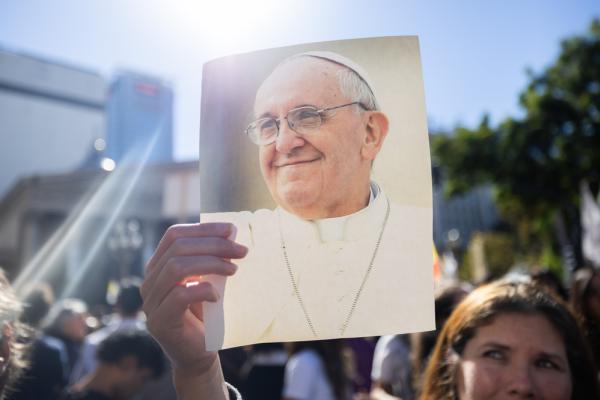Cardinal Robert Prevost was elected in a surprise choice to be the new leader of the Catholic Church on Thursday, taking the name Leo XIV, becoming the first U.S. pontiff.
Christian nationalist ideology expanding to nonwhite and non-Christian populations is a particular area of interest for Eric L. McDaniel, who is a professor in the department of government at the University of Texas at Austin. In The Everyday Crusade: Christian Nationalism in American Politics, McDaniel and his co-authors, Irfan Nooruddin and Allyson F. Shortle, explore how religious nationalist ideology is gaining influence with the American public.
Money, ubiquity, and familiarity have blunted the radical force of Lucas’ original vision, so much so that it’s not unusual to see nostalgia-poisoned fans wistfully recalling his original trilogy as a time before “everything got so political.” But Cameron, always a fine student of sci-fi politics, notes that not only were Luke, Leia, and Han taking part in an explicitly political drama; they were fighting on the side most of the viewing public — at least in modern Western politics — would consider “the bad guys.”
During the first White House National Day of Prayer of his second term, President Donald J. Trump said he is making America “rich, healthy, and religious again.”
Trump’s approval ratings have dropped sharply since he returned to the White House and stand at 42% after his first 100 days in office, according to a poll by NPR. Still, Trump claimed that the spirit of the country shifted positively since Nov. 5, the day he was elected. Trump said his administration was “bringing religion back” to the United States of America.
On Wednesday of Holy Week, while most Christians were preparing to proclaim the Resurrection of Christ, Health and Human Services Secretary Robert F. Kennedy Jr. made a proclamation of a different kind: “Autism destroys families.” He went on to say that autistic children “will never pay taxes, they’ll never hold a job, they’ll never play baseball, they’ll never write a poem, they’ll never go out on a date, many of them will never use a toilet unassisted … ”
These remarks framing autism as an epidemic or tragedy were not simply a one-off. They are both part of and an escalation in the broader Trump administration position that accessibility — the “A” in DEIA — is a problem to be eliminated, a mindset that results in policies that are at least unfriendly, if not actively hostile, to disabled people like me.
There’s been plenty of coverage of what Trump and his administration have done in their first 100 days. In the conservative media ecosystem, this coverage appears as disinformation-riddled praise for how Trump has restored America’s greatness and created renewed prosperity. In mainstream media outlets, this coverage is often focused on cataloguing the harms of policies that often felt chaotic or cruel. And while I’m grateful for those who ensure the public has an accurate understanding of the impact of Trump’s decisions, there’s another set of stories beneath those headlines that rarely get as much attention: how people have consistently been taking courageous action to counter these harms.
In the Gospel of John, Mary Magdalene is the first person to see the risen Jesus. That means, in the brief, beautiful space between meeting the Lord and telling the disciples what she’d seen, Mary Magdalene was the whole entire church, giving rise to her identification as “the apostle to the apostles.”
“What an important and special thing for the first person to witness Jesus resurrected being a woman,” Elizabeth Tabish said. “Being one of his best friends, and for her to not turn away from the crucifixion, not run from it, but to stay there in witness of it. And then this beautiful reward of remaining with him to the point of seeing him resurrected. It’s just beautiful.”
Tabish plays Mary Magdalene in The Chosen, the historical drama series that turned the life of Jesus into prestige TV and against all odds became a commercial and critical smash.
Recently, I got to visit Ebenezer Baptist Church in Atlanta, a historic site where the National Park Service presents a lecture on the church’s history and impact in the city. A key figure in the presentation is Martin Luther King Sr., a Civil Rights leader even before his son became the better known MLK.
I loved the presentation, but something kept gnawing at me as I left. The park ranger who gave the presentation would often pause to interject on the greatness of Rev. King — praise he deserves — but at times he would slip into a sort of deification. King lost his namesake son and his wife to assassinations, and he managed to publicly proclaim love and forgiveness for their killers. The ranger seemed under the impression this came out of a superhuman reserve of grace that he and the rest of us could never achieve. While I understood the point, I wondered if Daddy King (as he was called) would have agreed.
Pope Francis will be remembered as a champion for the vulnerable. The outpouring of praise from global leaders shows a near universal appreciation for his voice for justice.
Former President Joe Biden marked Francis’ death in a statement, saying the pope “commanded us to fight for peace and protect our planet from a climate crisis. He advocated for the voiceless and powerless.” President Donald Trump ordered flags to be flown at half-staff in the pope’s honor. Several other leaders in the U.S. and around the world also took time to honor Francis.
But you can’t have a voice for justice without boldly denouncing injustice, and Francis was brave enough to do so. Recalling Francis’ simplicity and humility, we must avoid the risk of erasing his courage and audacity, letting the powerful — all too keen to praise a pope whose advice they routinely ignored — off the hook in the process.
Even if you haven’t seen Warfare, you might have come across news headlines calling it “the most realistic war film ever made.” This isn’t a cheap marketing ploy. The film, the latest from Ex Machina, Annihilation, and Civil War director Alex Garland, does indeed have a strong claim to that title. Garland’s first foray into cinematic nonfiction, Warfare is based on the memories of Navy SEAL soldiers who were ambushed by al-Qaida in the aftermath of the Battle of Ramadi in 2006.
